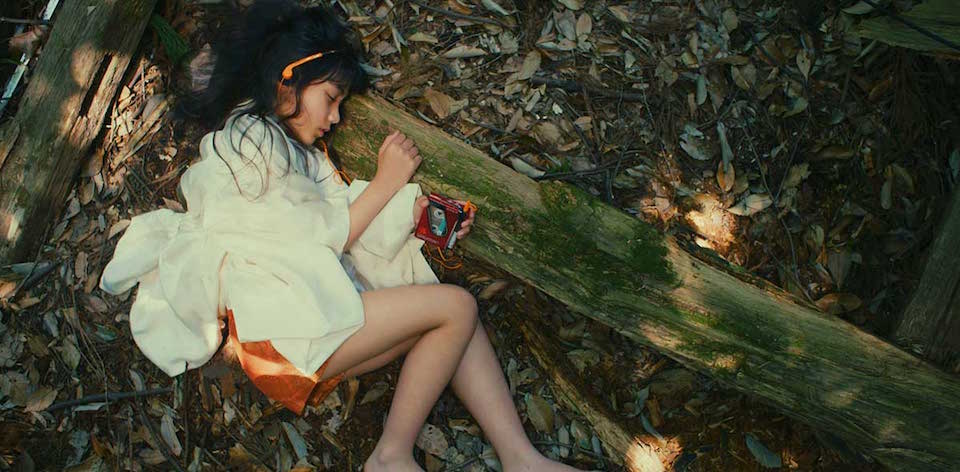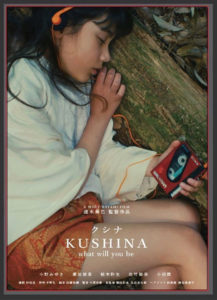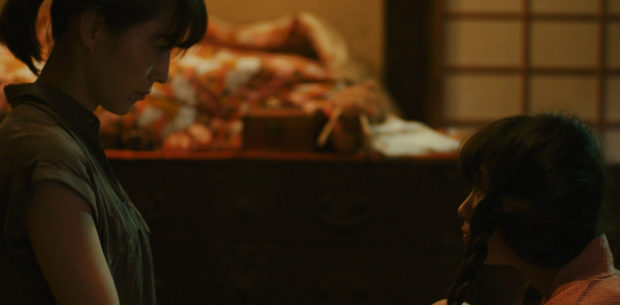In a ubiquitously connected world, it’s no surprise that larger numbers of people are wanting to check out of the system. Moët Hayami’s debut film KUSHINA, WHAT WILL YOU BE (クシナ) is in the same tradition as Debra Granik’s Winter’s Bone and especially Leave No Trace, where outsiders discover an independent community of women living off the grid.
Onikuma (Miyuki Ono) has founded an independent womens-only habitat in the mountain woods. Her daughter Kagu (Tomona Hirota) was only 14 when she was pregnant, one of the impetuses for moving out of the cities. Now her daughter Kushina (Ikumi Satake) is the same age she was when she had her. The fragile cultural ecosystem is interrupted when anthropologist (Yayoi Inamoto) and her male assistant (Suguru Onuma) arrive.
From the delicate and verdant opening shots, there’s a constant set of visual reminders that Onikuma’s community is almost otherworldly. From it’s close-ups of structural remnants, buildings, papers, and other artifacts from another world, we are introduced to a delicate utopia with very little ego.
Taking inspiration from Frederick Leighton’s 1877 painting Study at a Reading Desk, Hayami has stated that she took a deliberately measured pace to the editing to create a series of almost still-frame shots. The most iconic of these is the young Kushina lying curled up in the forest with her headphones on, an image that is found on much of the film’s promotional art. Yet every shot could be hung on a gallery wall.
Miyuki Ono’s return to the screen comes with a fierce gravitas. “This place must never be exposed,” she declares, and you better believe she means it. As one of the few characters who travels between the two worlds, the community and the outside, she carries herself as an omniscient matriarch burdened with foresight. Tomona Hirota puts every bit of her internal struggle on camera, albeit much of her motivation remains internal without the broader historical context we might crave.
Often an otherworldly dreamscape, this is a coming-of-age film told from a distinct point of view. KUSHINA is a film where all but one of the principal cast members is female, and Hayami is making a firm point. As one of her characters says from the outset: “In a small group, there is strength and beauty.”
 2018 | Japan | DIRECTOR: Moët Hayami | WRITERS: Moët Hayami | CAST: Miyuki Ono, Tomona Hirota, Yayoi Inamoto, Ikumi Satake | DISTRIBUTOR: Japan Cuts (US) | RUNNING TIME: 68 minutes | RELEASE DATE: 25 July 2018 (Japan Cuts)
2018 | Japan | DIRECTOR: Moët Hayami | WRITERS: Moët Hayami | CAST: Miyuki Ono, Tomona Hirota, Yayoi Inamoto, Ikumi Satake | DISTRIBUTOR: Japan Cuts (US) | RUNNING TIME: 68 minutes | RELEASE DATE: 25 July 2018 (Japan Cuts)






